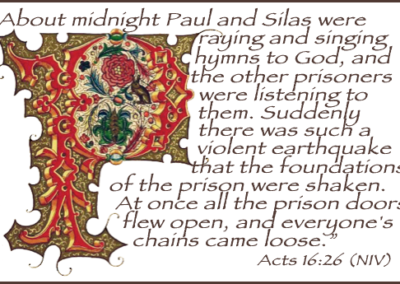The Nuclear Family Is Indispensable
JUNE 4, 2020BY SCOTT L. BUCHANAN
https://www.thepublicdiscourse.com/2020/06/61640/
Advocates for family fluidity routinely level two claims against the nuclear family: first, that it is a mere “blip” on the historical map, and second, that it is largely unconnected to the well-being of individuals (especially children). In both instances the goal is to diminish its significance as a valuable form of kinship structure. For all their popularity, however, neither assumption withstands scrutiny.
That the nuclear or “traditional” family has rapidly unraveled in most of the Western world is hardly news. The ongoing demise of this particular type of kinship—composed of faithfully married men and women, along with the children they produce—is now so common that the persistence of intact family life often elicits surprise. Moreover, some see its splintering into a variety of blended and artificial combinations as more than an unremarkable feature of modern life—they see it as a virtuous expression of individual autonomy.
Elite opinion has long harbored the belief that the nuclear family is in no way superior to other family types, and that its decline was, at worst, a mildly disruptive presence in the lives of those who have experienced it. Modern society is now awash with these assumptions, which have catechized a great swath of people into believing that families can be arranged and re-arranged in Tetris-like fashion. So ubiquitous are the conclusions of modern progressives that even putatively conservative voices have bought into the skeptical assessment of the two-parent biological family as a key source of today’s frayed and atomistic society.
Advocates for family fluidity routinely level two claims against the nuclear family: first, that it is a mere “blip” on the historical map, and second, that it is largely unconnected to the well-being of individuals (especially children). In both instances the goal of these claims is to diminish the family’s significance as a valuable form of kinship structure. For all their popularity, however, neither assumption withstands scrutiny.
The Nuclear Family: A Passing Phase?
We may begin with that notorious canard that the nuclear family is of fairly recent vintage. The idea is a common one, invoked so often and so easily that it has attained the status of unassailable fact. For all its superficial plausibility, however, the argument is largely innocent of historical truth. Even a brief glance at the late Brigitte Berger’s The Family in the Modern Age should swiftly disabuse a person of the notion that the nuclear family, at least in its Western European iteration, is some kind of historical aberration. It’s worth quoting her at length:
This band of scholars [i.e., the clutch of European historians whom Berger mentioned previously] can document with a fair degree of certainty that the nuclear family . . . was instrumental in the modernization process. In being able to trace the existence of the [nuclear] family as far back as the thirteenth century, they succeeded [in] “nullify[ing]” the widespread assumption that [it] is a product of industrialization. To the contrary, their studies unmistakably indicate that this type of family unleashed the very social forces conducive to the formation of modern economic and political institutions. (emphasis mine)
One historian Berger cited in her book was the late Englishman, Peter Laslett, whose own analysis of the past in relation to the family has done much to overturn the “obfuscating misbeliefs” of the present age. In doing so, he conclusively showed that relatively small, simply composed family groups have predominated in Western Europe and its cultural offspring since the 1300s. Commentary on such studies underlines the fact that, as a way of arranging intimate life, the nuclear family has flourished since the European Middle Ages—long before the Industrial Revolution, the Second World War, or any other dubious historical markers used to marginalize it as a novel “departure from a much older tradition.”
According to scholarly study, then, the nuclear family has actually endured for many centuries. Of course, if mere longevity were enough to ensure an institution’s legitimacy, then we should all be championing slavery. Nevertheless, the nuclear family’s survival over so long a period provides a strong presumption in its favor: aside from the conservative’s tendency to value what has endured the winnowing process of time and history, there is reason to think that this familial pattern taps into something quite crucial regarding the natural attachments between bonded parents and their children.
Masking the Nuclear Family’s Significance
This brings me to the second key point. Alleging that the nuclear family is a historical anomaly tends to go hand in hand with the contention that it holds no advantages over other familial arrangements, since all such types are mere collocations of autonomous, contracting parties. But where some commentators are convinced that the nuclear family is a dispensable artifact of the modern West, whose passing is of little importance, the evidence unearthed by social science consistently points in the other direction.
It is of course true that the traditional family has sometimes been dragged into the maelstrom of present-day culture wars; moral majorities and cynical politicians have frequently politicized family life, transforming it into something of a talisman for the Right. But this concession shouldn’t be allowed to obscure two undeniable facts: that families composed of married parents and their biological children have enriched both individuals and societies; and that, according to a wealth of social science data, this particular kinship structure remains superior to many of its rivals.
The experiences of children, considered on a broad-scale trends analysis, make these claims quite clear. Historical investigation of the sort I have alluded to is buttressed by contemporary sociological evidence concerning the overriding benefits of intact, biological, two-parent families for the social, emotional, and intellectual development of the young. In fact, a robust link can be drawn between patterns of “concerned cultivation” that prevail within nuclear families today, and those practices of nurture and attentiveness that evolved in its earlier iterations.
Kay Hymowitz, for example, has cogently argued that, of all family forms in Western Europe, the nascent nuclear family was better placed for the raising of children during the economic and social upheavals of the late medieval and early modern periods. Unlike extended kinship groups, nuclear families were often headed by couples who had married later, which normally meant that they had fewer children. The offspring born to such couples therefore benefited from the larger share of attention that their parents could lavish upon them.
Whereas extended families sometimes functioned as fairly loose coalitions—leading, for instance, to the expectation that older children would take care of younger siblings—children in nuclear families were drawn into tightly integrated “households already steeped in an ethos of hard work, future-mindedness, and ingenuity.” These skills were necessary for a changing economic landscape, and the intimate context within which this modeling occurred allowed such children to flourish. The two-parent biological family has consequently played an instrumental role in both the socialization of individuals and the evolution of Western societies.
Recent studies of biological, bonded, two-parent families extend and develop these insights. Sociologists and social scientists have found, for example, that children raised in the relatively secure structure of the nuclear family excel on a number of key developmental indicators, outperforming those peers who have been reared in a variety of other family types. And it’s not just the former set of children who benefit, either; society at large also flourishes, given that this particular familial pattern often acts as the seedbed for the cultivation of productive, responsible, well-rounded citizens.
Lest one think that conservative activists are alone in touting the advantages of the nuclear family, some liberals also recognize its inestimable value. The late Don Browning—no traditionalist he—wrote powerfully of the ongoing importance of the nuclear family, even in the face of progressive attempts to ridicule or abandon it. While adopting an appropriately cautious approach to the issue, Browning unfurled a catalogue of statistics over multiple works, clearly demonstrating similar links between intact, biological families and the well-being of children.
One of the many crucial insights that Browning brought to his discussion of family trends was the often fundamental importance of biological relatedness as a “pre-moral” condition for good parenting. To be sure, this doesn’t guarantee a warm and nurturing home life for children; plenty of people can attest to ill treatment at the hands of their natural parents. But it remains true that such linkages often constitute a necessary prerequisite for thriving domestic environments, for the simple reason that biology exerts a powerful influence over the range and potency of human obligations. Indeed, such environments have been found to be positively correlated with the emergence of pro-social characteristics like “commitment, presence, steadfastness, and positive regard.”
It’s not simply the case that a father tends to provide financial ballast to his family; healthy paternal involvement is also crucial to a child’s emotional and cognitive development.
This appears to be particularly crucial in the case of fathers. Both social scientists, and writers building on their work, have highlighted the important contributions that children’s natural fathers make to their welfare. It’s not simply the case that a father tends to provide financial ballast to his family; healthy paternal involvement is also crucial to a child’s emotional and cognitive development. Study after study has recognized the invaluable nature of a biological father’s presence, in everything from academic achievement to the avoidance of criminality. Equally well documented has been the depressingly common trend of paternal absence, part of the wider dissolution of intact, two-parent family structures. Again, this isn’t merely a case of overheated conservative rhetoric; those who might otherwise be favorably disposed toward a more liberal view of human relationships willingly concede these truths.
Caught in a Bind
Modern progressive elites would doubtlessly lament many of the ills that plague modern society, as well as the harm inflicted on children as a result of desperately inadequate domestic environments. Even so, they ignore the massive body of evidence that traces these pathologies back, at least in part, to the nuclear family’s demise. By reducing the significance of the biological two-parent family to trivial proportions, contemporary advocates denigrate an institution that has long survived in Western societies as the primary incubator for stable, well-adjusted, and socially conscious individuals. Similarly, their fetish for the sovereign individual and his or her journey of self-discovery has provided the philosophical bedrock for a raft of developments—easy divorce, infidelity, out-of-wedlock births, and so on—that have conspired to destroy the family and endanger the well-being of the vulnerable.
Meanwhile, the modern fictive kinship arrangements that many progressives extol are frequently (though not always) the result of the breakdown of more traditional family forms—the collapse of which leads inevitably to the very chaos, pain, instability, and neglect they would rightly decry. Rushing to applaud so-called “forged” or alternative families, they remain seemingly unaware of those studies that suggest that, for all the supposed attractions these groupings embody, they lag behind their nuclear “counterparts” when it comes to the key ingredients of, for example, child-nurturing; on the other hand, their rise is often associated with the wider unravelling of social bonds. Substituting glib dismissals for honest engagement simply shields from view the multiple connections between particular family types and these widely recognized realities. Not only does this make the formulation of public and social policy all the more difficult; it also reinforces the very maladies to which the abandonment of the nuclear family has contributed.
The modern progressive movement is often guilty of attempting to overthrow social, and even biological, reality. Nowhere is this more true than in its efforts to transcend entirely the institution of the two-parent biological family, and the deep bonds of love and affection that it is designed to preserve.
The modern progressive movement is often guilty of attempting to overthrow social, and even biological, reality. Nowhere is this more true than in its efforts to transcend entirely the institution of the two-parent biological family, and the deep bonds of love and affection that it is designed to preserve. Even if many advocates live fairly conventional domestic lives, their espoused beliefs have had a seismic—not to say pernicious—influence on Western societies over the past two generations. That influence is not going to disappear any time soon, and the progressive “catechesis” may be long in bearing fruit. For all that, presenting the widely recognized virtues of the nuclear family is vital if the creation of flourishing communities is to be achieved. The truth—not to mention the welfare of future generations—demands nothing less.





